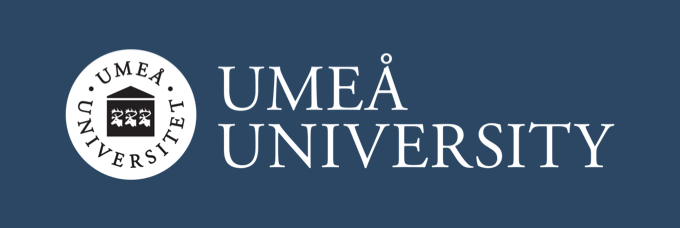Artificial intelligence (AI) is transforming work and life as we know it, already boosting workplace efficiency and leading to noticeable improvements to the quality of for instance healthcare, lowering costs while giving clinicians time to work with their patients “more closely, and with more insight. This was made clear in a recent MIT Technology Review Insights survey produced in partnership with GE Healthcare, where more than 82 percent of healthcare business leaders said their AI deployments were showing positive results across operational and administrative activities,”.
When analysing the impact AI would have on the global education sector, founders of the Institute for Ethical AI in Education (IEAIED) said there was no need to fear the technology. Rather than replace the human element in education, AI would augment teaching and learning, they said.
“There are highly beneficial applications of machine learning inside the area of education. Artificial Intelligence may enable personalised learning, especially important for students with specialized needs and challenges. A“well-designed AI can be used to identify learners’ particular needs so that everyone – especially the most vulnerable – can receive targeted support”.
With global education and healthcare being just two of many sectors that AI has advanced so far, and with hundreds more AI technology developments on the horizon, such as autonomous vehicles, manufacturing and financial services to add to the list, the need for expertise in the field appears limitless!
Firmly supporting this need and accepting this challenge is the Faculty of Science and Technology at Umeå University, Sweden.
 Currently open for autumn 2020 intake, their new Master’s in Artificial Intelligence is a postgraduate programme that enables you to develop broad and core competence in AI and equips you with the digital tools necessary for future career success.
Currently open for autumn 2020 intake, their new Master’s in Artificial Intelligence is a postgraduate programme that enables you to develop broad and core competence in AI and equips you with the digital tools necessary for future career success.
You’ll also experience a combination of lectures, seminars, group work, and tutorials in conjunction with different types of assignments and laboratory work to advance your AI education in a multidisciplinary manner.
“It is of critical importance to study in a more multidisciplinary manner, where humanities and social sciences are combined with science and technology. AI can no longer be seen as a purely technical or computer science discipline. It is per definition interdisciplinary,” says Umeå Department of Computing Science Professor, Virginia Dignum.
One of the first professors recruited to Sweden as part of the Wallenberg AI, Autonomous Systems and Software Program (WASP) initiative and actively involved in several international initiatives on policy and strategy guidelines for AI research and applications, such as the European Commission High Level Expert Group on Artificial Intelligence (AI HLEG), Dignum is one of the AI experts at Umeå who are driving research and graduate success forward.
“My position at Umeå University makes it possible for me to look at societal, ethical and cultural consequences of AI. I will for instance be studying methods and tools to ensure that AI systems are formed not to violate human values and ethical principles,” says Dignum, who also leads the research group Social and Ethical Artificial Intelligence at the Faculty.
Another integral member at the Faculty is Senior Lecturer Helena Lindgren.
Understanding the urgency of AI integration, Lindgren believes that the university needs to be driven to produce research that develops, educates and enhances the capabilities of AI in society, both in terms of system development and implementation.
“One of the objectives at Umeå is to raise society’s AI competence, such as through continuing education and professional development of currently employed persons. It’s very important for Sweden as a nation, as well as its companies and organisations, to be able to take the next step in digital development,” says Lindgren.
Lindgren and Dignum reflect the high caliber of the 30-strong researchers at Umeå University that are engaged in the development of AI in different areas.
To study here is to be under their expert guidance as you undertake courses that relate to human-AI interaction and complete student projects conducted in collaboration with an organisation addressing societal challenges.
In these projects, students are expected to collaborate in interdisciplinary teams and with representatives from industry and public organisations, adding a practical twist to the 2020 course.
In this English-taught Master’s, you are also expected to take full responsibility for organising your tasks so that deadlines are met and collaborative work within student projects are manageable within office hours.
A track record as pioneers
Despite being a new course, AI is not a new focus for Umeå.
In the 1970s, Umeå Professor Lars-Erik Janlert focused on Knowledge Representation, and in the early 1980s he formed the Swedish AI Society together with other Swedish researchers.
Since then, Umeå has expanded its outreach into a variety of research and education activities across different departments and faculties and is now one of seven universities that are part of the governmental initiative AI Competence for Sweden.

Umeå University
Continuously building its research efforts through its strong interdisciplinary traditions and close collaborations with society, AI@UmU initiatives have also established an expanding network of researchers, teachers, students and professionals who want to learn, discuss and collaborate around AI-related issues via seminars, panel discussions and courses.
Always welcome to discuss the latest tech revelations and AI advancements with their professors and visiting professionals, Umeå students are motivated to unearth AI research angles of their own.
From day one of the new Master’s programme, they’ll deepen their insight into this exciting field and take their knowledge of AI’s theoretical foundations, intelligent robotics, machine learning and data science further.
So, if you’re ready to master all areas of AI and want to start your postgraduate study venture in Sweden, click here to find out about the application and eligibility process.
Follow Umeå University on Facebook, Instagram, Twitter and YouTube.
Liked this? Then you’ll love…
Umeå University: Preparing students for life after graduation
Umeå University: Advancing Science through 5 strong research environments











